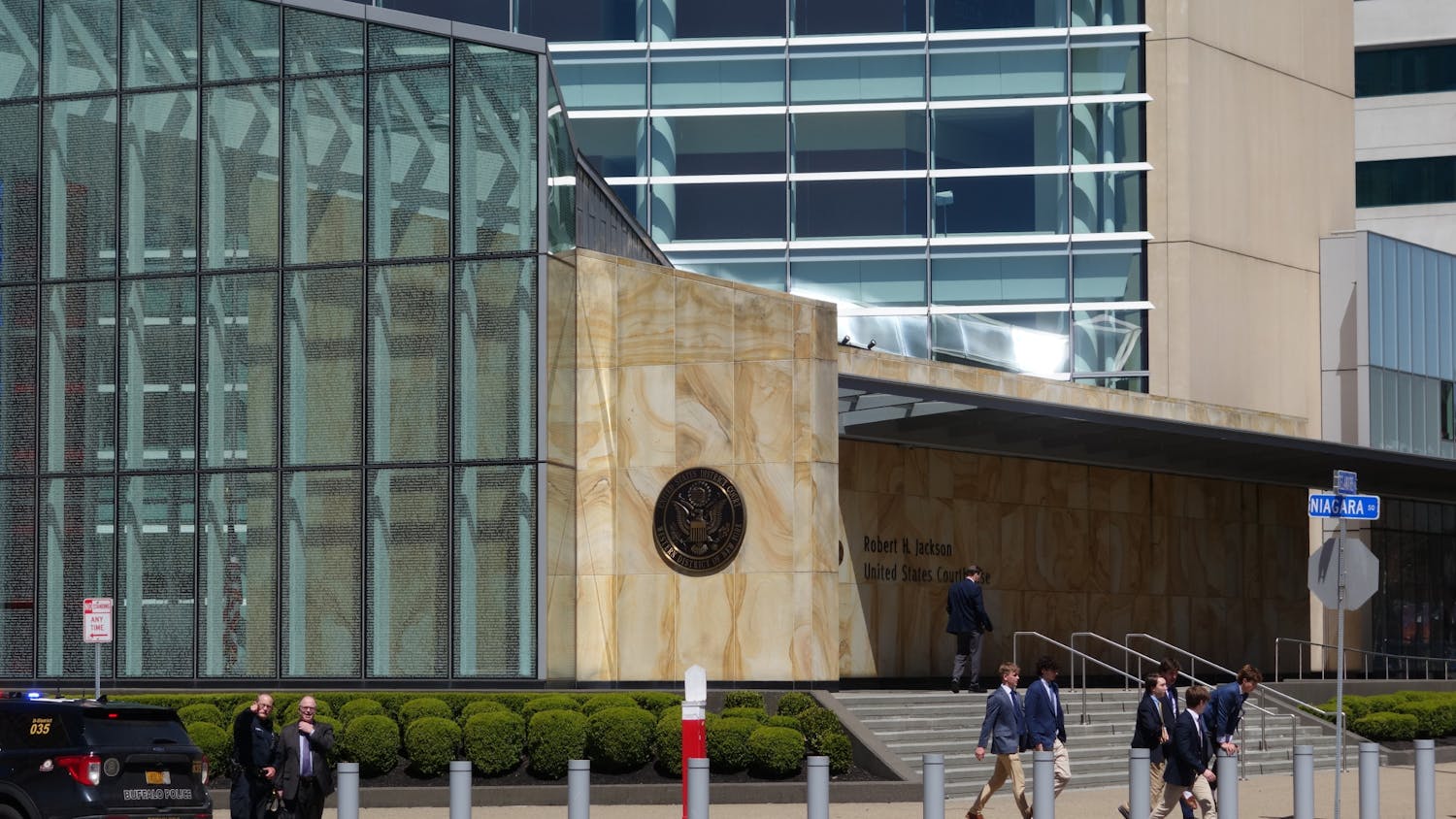Howard Bunsis –– the Eastern Michigan University accounting professor who reported UB spends more on administration than any of its “peers” –– denies UB’s statement that his independent financial analysis had a “preconceived agenda.”
Bunsis’ report, which he released in February, called UB financial reporting “less transparent” than any of the over 100 universities he examined over the last 15 years. UB’s response urged readers to be “very skeptical of its findings” and said Bunsis had a “preconceived agenda” because he was hired. UB said the “report contains several flaws, inaccuracies and inconsistencies that misrepresent and misinterpret UB’s budget and budgeting process.” But Bunsis, in an April 3 email, said his report was based on “facts.”
“I do not have any preconceived agenda. I look at the facts and make a conclusion,” Bunsis wrote. “Yes, I was paid, but the small compensation was not related or conditioned on any finding at all. I am an accounting professor. Facts matter.”
The report states UB spends a higher percentage of total salaries on administrative spending than any peer institution –– 12 public AAU institutions UB selected as “peers” –– spending 13% of total salaries on upper administration and $23 million more than its peers’ average. It also reported faculty salaries are $20,615 less than the average at peer institutions and found UB had a 22% decrease in the number of assistant professors it hired between 2009 and 2020.
UB claimed Bunsis “erroneously… equates ‘Institutional Support’ with executive administrative salaries” and stated UB “recognizes the importance and value of financial transparency.”
UB said “Bunsis devises his own definitions rather than simply stating the [The Institutional Postsecondary Education Data System] definitions of each category.”
According to IPEDS’ definition, “Institutional Support” includes expenses for “general administrative services, central executive-level activities concerned with management and long range planning, legal and fiscal operations, space management, employee personnel and records, logistical services such as purchasing and printing, and public relations and development.” It also includes information technology expenses “related to institutional support activities” and, unless budgeted separately, information technology costs “associated with student services and operation and maintenance of plant.”
At UB, 36% of “Institutional Support” employees are staff or personnel assistants, 33% are information technology programmers and support analysts, 12% are secretaries or service skilled workers, 10% are associate vice presidents or directors, 7% are sponsored project associates, and 1% provide legal services. The president, provost and VPs are 1%.
UB did not disclose the salaries of the employees listed under “Institutional Support” when asked by The Spectrum.
“In IPEDS, institutional support contains the salaries of the upper-level administrators at UB and any institution,” Bunsis wrote in an email explaining why he chose to call the category “administrative spending.” “There is no faculty, no union workers, no mid or lower-level staff in that category. It is all people paid the most at any institution. … There is no doubt that UB spends more than peer institutions on this category –– and the conclusion is clear –– the priorities of the UB administration should be questioned.”
Austin Liebers, co-chair of the Living Stipend Movement, wrote in an email that Bunsis called “Institutional Support” “administrative salaries” because “that is what it is.”
“Institutional support is administrative,” Liebers wrote. “That’s why we call certain university staff who provide institutional support ‘administrative assistants.’”
UB responded to Bunsis’ statement that UB is financially “less transparent” than any university he has examined by stating “university leadership fully engages the campus community in discussions regarding its financial condition” through “presentations and discussions with the Faculty Senate, Faculty Senate Budget Priorities Committee, the Dean, Department Chairs” and by posting financial statements on UB’s website.
James Holstun, an English professor and chair of the Faculty Senate Budget Priorities Committee during the 2018-19 academic year, wrote in an email that UB did not provide the financial data he requested during UB’s “presentations and discussions.”
“‘Presentations and discussions’ are not data: during the Academic Year 2018-2019 when I chaired the Faculty Senate Budget Priorities Committee, the administration repeatedly refused to provide us with the basic budgetary data we requested to perform our committee charge,” Holstun wrote. “The UB Council has broken New York State Education Law for at least seven years in failing to review and approve the yearly UB budget request. This is a grave failing.”
Julian Roberts-Grmela is a senior news editor and can be reached at julian.grmela@ubspectrum.com and on Twitter @GrmelaJulian.

Julian Roberts-Grmela is a senior news editor for The Spectrum and an English and philosophy major. His favorite book is “White Teeth” by Zadie Smith and he hopes that one day his writing will be as good as hers.





